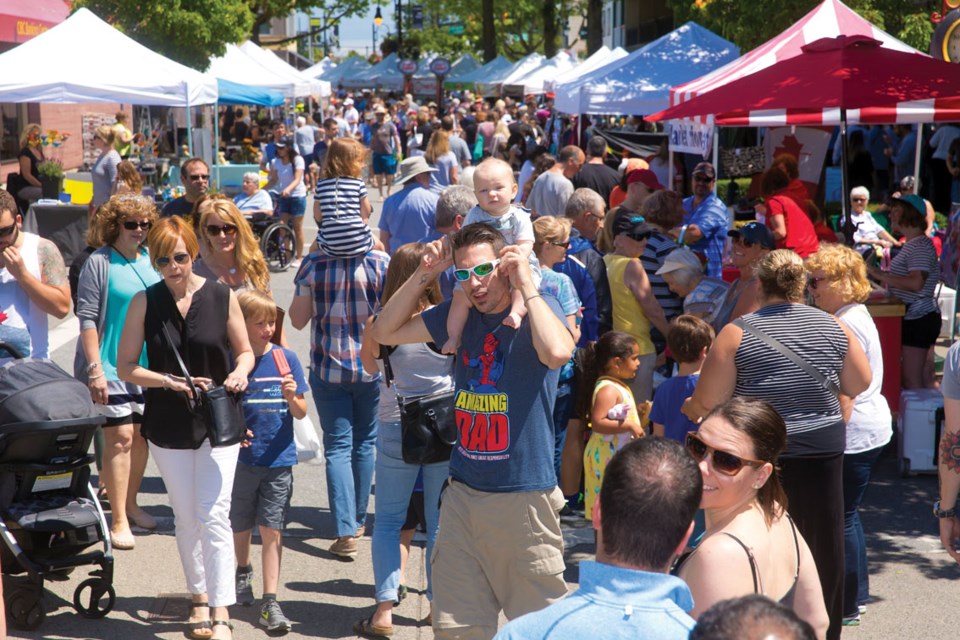A quick Google search of farm-to-table yields hundreds of examples of what once was a social movement, but is now a social norm.
Here in South Delta, the farm-to-table philosophy of a direct sales, community-supported agriculture, farmers markets or locally distributing to a restaurant or school is readily apparent, taking on a life of its own among the ever-growing farming community.
Backroads Family Farm Market, located on 52nd Street at the corner of 28th Avenue, has now been open for six seasons. Owned by Danielle and Alicia Guichon, of the prominent Guichon farming family, Backroads opened in 2014 due in no small part to the popularity of their roadside stand and their presence at the Ladner Village Market.
“We started in 2001 at the Ladner Village Market and before that selling at the roadside,” recalls Danielle. “We started with one tent at the market, we were reading books to pass the time and waiting for customers to come by. It started slow. I think it took four years before we noticed that people recognized us and loved coming to us for their fresh produce.”
She says that growth started because of consumer confidence in their products.
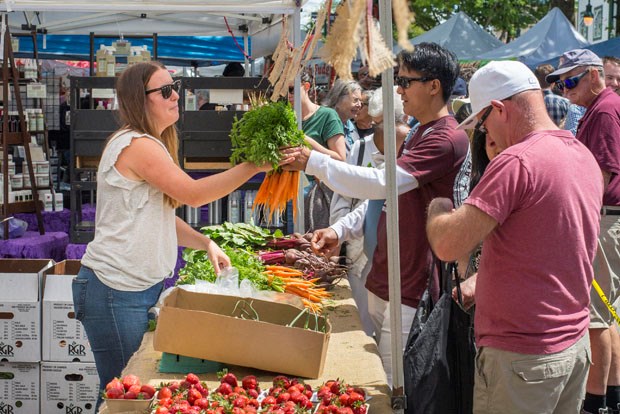
“They knew our farm and our family and people wanted to support us. As the roadside got busier, we would sell half a bin of corn and then we would start to sell a full bin and then two and sometimes three. That was our norm most days,” she says. “Then Alicia and I started incorporating different kinds of fruits and veggies from other farms in the area and would bring them all over to the roadside stand.”
You could say Backroads had a farm-to-table philosophy before it was trendy.
“It’s not even a question anymore. People just expect it. And why wouldn’t you?” asks Danielle. “People put pressure on local restaurants, especially here in the Lower Mainland, because they know what is grown here, and they want to choose where they go for dinner and want to eat from this area. At first I think it was a selling point for restaurants, now I believe it is the norm that keeps their customers happy.”
Farm-to-table continues to grow in popularity, and not just selling produce direct to the consumer, but also creating a place of community for a lot of people.
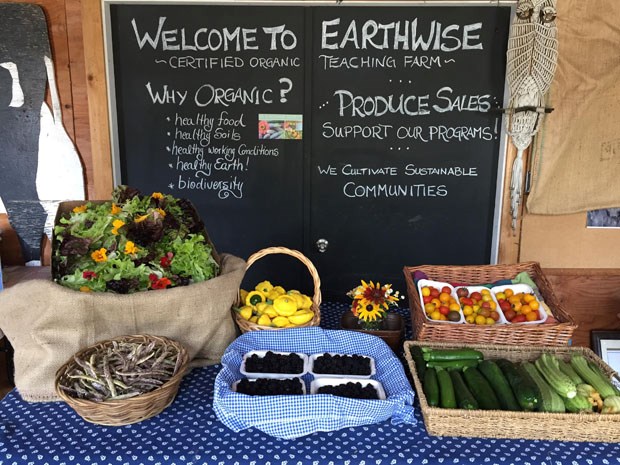
That’s certainly evident at the Earthwise Society Demonstration Garden and Farm on the Southlands that for 10 years has been offering customers a farm-to-table choice.
“I think it’s about people beginning to feel more re-connected to the food that they eat,” says executive director Patricia Fleming. “From our point of view, sharing food with other people is one of the most basic pleasures of being in this and when you are able to purchase local food and share that, people discover there is a difference and realize what is happening in the farms and fields around them is really important. Farm-to-table is important to show that your food just doesn’t come in packages at the grocery store.”
Fleming says the reason Earthwise programs were successful 10 years ago was because it wasn’t as prevalent, but it gave people a chance to discover what farm-to-table actually means.
“And it’s an exciting discovery because there really is a difference between a carrot that has been pulled out of the ground a few hours ago versus something that has been shipped for miles,” she says. “I think the important thing about the whole farm-to-table experience is that it drives change. People enjoy the experience, they enjoy sharing their new discoveries with their friends, the place down the road where they got the wonderful fruits and vegetables, and it increases the demand for local products and that has a positive impact as well.
“As demand grows it provides more opportunities for local farmers. We’re all hoping to improve local food security and it’s people’s support of the local farms that helps drive that.”
According to the BC Association of Farmers’ Markets, research shows that British Columbians’ food purchasing decisions are strongly influenced by their interest in supporting the local economy (80 per cent), the desire for fresh food (79 per cent) and how safe the food they purchase is for consumption (77 per cent).
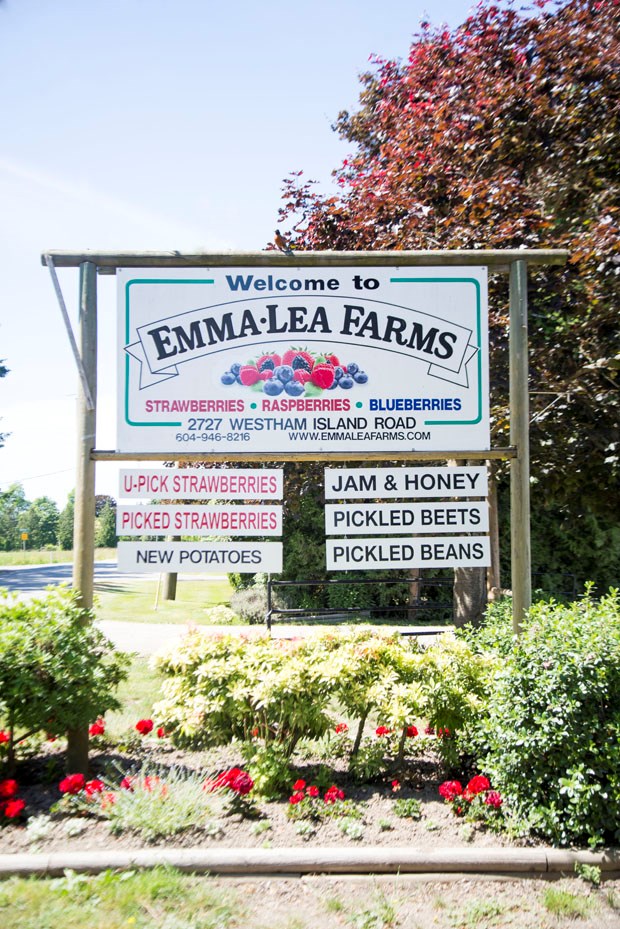
Katie Leek from Emma Lea Farms on Westham Island agrees that farm-to-table works because people really care about where their food is coming from, who is growing it and how it’s grown.
“We are really encouraging people to ask us questions and we’re trying to provide them opportunities to learn more about our local food system and what it means to farm responsibly,” says Leek. “We try to do a lot of things on our farm such as field trips, guided and self-guided farm tours, we have the spring market and Christmas market, and just to provide them opportunities of what it looks like at a farm year round and have them come out at different times to experience.”
Leek is a fifth generation farmer at Emma Lea which was founded in 1885.
“It started with my parents selling out of the back of a truck to building a small farm stand, then the farm market as it is today, adding the ice cream shop and each addition we set ourselves a one-year, five-year and 10-year goal and look at what we can do and change things and improve.
“I think it’s really important to put a face to the farmer and meet them directly. Having our farm market, we love to sit and have conversations with our customers about the varieties of the berries we have, how we combat pests and what we do on our farm to farm responsibly.
"All the other farm markets in the area have all come about in the last five to 10 years, so that in itself shows there is clearly a demand for farm to direct markets in our community and that people really do understand the importance of sourcing their food locally.”
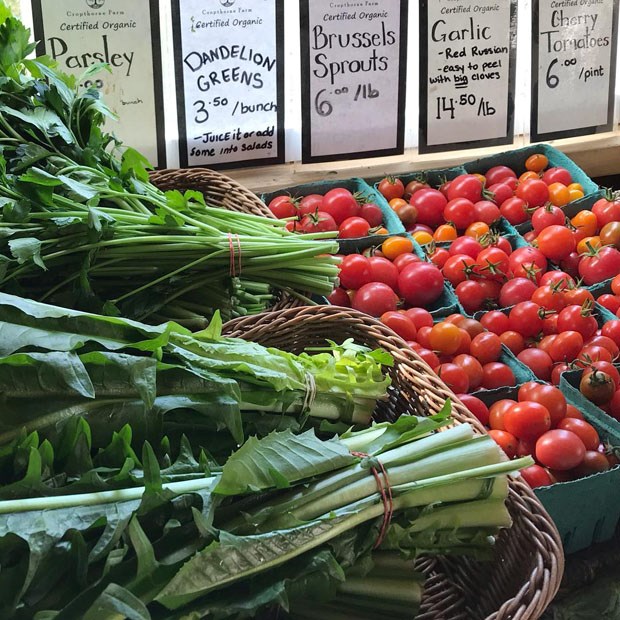
Restaurants continue to crave locally-sourced products, a trend that’s evident for the folks at Cropthorne Farm on Westham Island.
“We enjoy working with chefs because they are working with our vegetables and sometimes they are doing things that we would never think of doing, so they are really pushing the culinary arts and the magic of our food,” says Cropthorne’s Lydia Ryall. “I think people are having a greater respect for farming and land preservation and they want local, they want fresh and the connection of getting diverse products, and more specialty items.”
Delta is also becoming a popular spot for agri-tourism, which Ryall says is something the City of Delta, business and farming community needs to grow on.
“It’s just not helping our business, but when people come by they ask where to eat, get a beer, shop for this or that. It may bring people out here and they spend money in agriculture, but they also spend money elsewhere, which is so important for everyone here in Delta,” Ryall says.
Garry Shearer, executive director of the Delta Chamber of Commerce, says his organization is working with Tourism Delta and the Delta Farmers’ Institute to create a circle farm tour.
“In order to support tourism in Delta we need to develop products that are going to attract tourists to Delta. Given the constraints we have in terms of hotel accommodations, we need to be focusing on day trip activities that will entice people to visit from other communities. Some of the best products we have to offer in Delta is our farming community.”
DFI president Peter Guichon says the farming community embraces this initiative with open arms.
“The whole farming community supports any awareness of what we do and we embrace farm-to-table, for sure,” says Guichon. “I think awareness is the biggest thing. Most of us open our farms to tours like that already, so opening it up on a broader, organized scale will be even better.”
An extension of agri-tourism in South Delta already exists with the popular Ladner Village Market.
Held on seven Sundays throughout the summer, the market on 48th Avenue has become the go-to destination for thousands of locals and visitors for the past 23 years.
“We are seeing a lot more of the smaller to mid-sized farms coming out and being represented at the market, which is wonderful,” says market coordinator Tracey McKnight. “Cropthorne Farm is an example of that. People are going to her because it is farm fresh coming right off the fields.
“Vendors will talk about how you use the product, how to cook with it and people love that aspect. The whole idea of farm-to-table is wonderful. It’s teaching our young people so much.”
The South Delta farming community also does a great job of supporting its own.
“I think we all feed each other,” says Ryall. “The City of Delta has done a good job with their ‘Eat Local’ signage that promotes that we can grow these things in Delta. Especially here on Westham, if we don’t have it, we send them up the road to Emma Lea or the Westham Island Herb Farm, so it’s a good comradery between us. We have so much respect for all the other farms in Delta. We all work well together and support each other.”
Danielle Guichon says there’s a true sense of community and partnership among the farming community.
“The Ladner Village Market gave us our start,” says Danielle. “We were the youngest vendors at the time. They knew dad and they trusted that these two young girls would know what they were doing. It was our little business in the summer and look where that has taken us. Now we are in the position to help others in the community and give customers everything that they want.”
